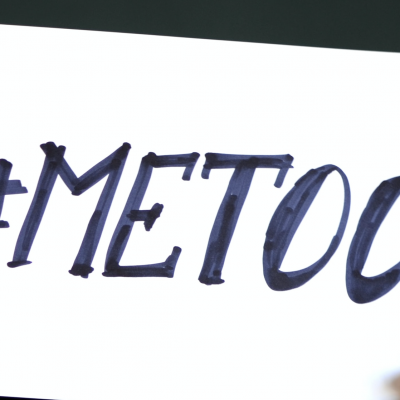Details
Article
In October 2017, the German State Secretary for Federal Affairs Sawsan Chebli sparked a country-wide discussion on sexism, after the events at the annual meeting of the Indo-German Society. As Chelbi summarized on Facebook, Hans-Joachim Kinderlen – chairman of the Indo-German Society and a former diplomat who was to officially open the session – did not notice that Chelbi was already in the room and suggested going forward with the meeting without her. When she confirmed her presence, the former diplomat responded, “I didn’t expect such a young woman. And then you are so beautiful as well.” The participants of the forum interpreted the scene a bit differently – at some point during the meeting, Kinderlen expressed joy by saying that “such a young and beautiful woman is [today] speaking on behalf of the Berlin Mayor.”
In the era of the #MeToo campaign, when men are concerned about the possibility of having their lives ruined by a false accusation, they are going through an experience that is a reminder of the injustice and unfair treatment that women have undergone for centuries.
In any case, in her Facebook post, Chelbi claimed “to be shocked“ by this blatant sexism and her post attracted numerous comments, which ranged from fully supportive of her position to completely hateful of her reaction and incited further discussion on the state of sexism in Europe.
Chelbi claimed “to be shocked“ by this blatant sexism
Discussions Unfold:
Roughly one month after the incident, I was invited by a friend to a birthday dinner. All of the guests were well-educated, respectful, nice people; they were staunch social democrats, politically-wise and of a confident middle-class, representing a variety of age groups. Later in the night, a “more serious” conversation slowly began to unfold following a comment made by a young man doubting the legitimacy of Chelbi’s reaction and her “very provocative” word choice (she was shocked!). Other men cautiously spoke up on behalf of men in general stating two general concerns that have recently been named in different formulations and languages all across Europe. Firstly, such public condemnations without a trial can damage a man’s reputation forever. Secondly, such an overreaction will lead to a puritan asexual society based on rigid political correction with no space for the expression of sexual interest or even sexuality itself. Some explanations were presented in order to mitigate Kinderlen’s words (a compliment, a feeble joke, a good intention, a humorous effort to come out of an unexpected situation, he is an old-schooler) and to criticize the disproportionately strong reaction displayed by Chelbi, including that her argument devalues real rape victims, that she is being overly dramatic, and that she wants publicity. There was a suggestion at the table: she didn’t have to rage over the incident publicly on Facebook but rather speak to him privately. He would definitely understand.
Today, a patriarchal society is not defined by women’s rigid roles, or by the absence of the right to vote or even access to education.
The Bottom Line:
Minor incidents like this one uncover a general anxiety among men (and women?) to question a patriarchal structure, which unmistakably defines what real intentions are, what an appropriate reaction to perceived misconduct in the workplace is and, in the end, what sexism is. Today, a patriarchal society is not defined by women’s rigid roles, or by the absence of the right to vote or even access to education. We are already past that. Our society is perceived by many to be already democratic and equal in regards to gender. However, it is not defined by good intentions and a feeling of what is right and what is wrong, what is appropriate and what is not. So, what is this truly gender equal society in which women’s experiences are legitimate and do not pose a threat to men’s experiences? This is the next step and this is what is so difficult to consider. What comes after the moment when the traditionally understood patriarchy has lost its power but gender equality is still not existent? What comes after the harmless comments paid by an “old-school and well-intentioned” diplomat and the dramatic reaction of “an intelligent and beautiful, but unfortunately hysterical”, state secretary?
Conclusion:
What comes after is discussion of course. The discussion which I witnessed and participated in woke me up in a way. The definition of sexism (and other -isms) is not a matter of the past here in Germany. It is not something carved in stone. Democracy at large is not a given either – it is not an entity but a process in which we live and participate every day. There is no country, age group, certain background, nor upbringing that makes us immune to certain opinions fueled by doubts or fears. In the era of the #MeToo campaign, when men are concerned about the possibility of having their lives ruined by a false accusation, they are going through an experience that is a reminder of the injustice and unfair treatment that women have undergone for centuries. This experience might unite us in our common struggle for a better communication and a more just world for all people.
References:
Report of the events at the Indo-German Forum: https://www.welt.de/politik/deutschland/article169668512/Staatssekretaerin-prangert-Sexismus-an.html


